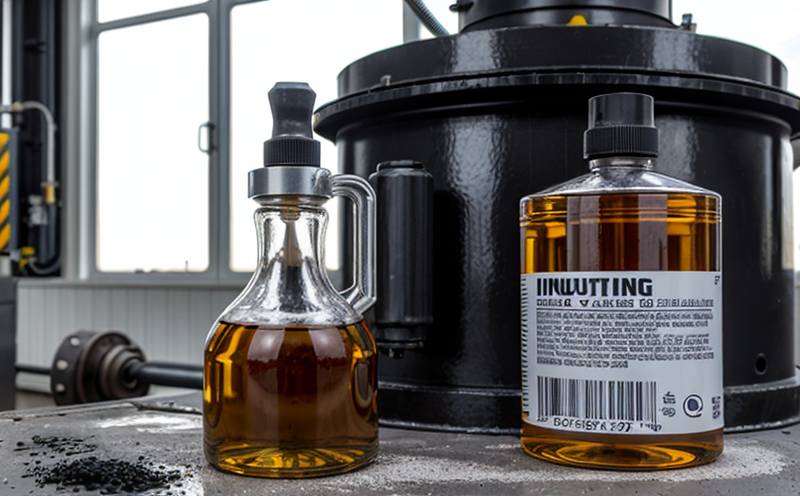ISO 14597 Additive Testing in Lubricants by ICP
The ISO 14597 standard provides a robust framework for evaluating additive content and performance in lubricant formulations. This service is designed to help our clients ensure product quality, regulatory compliance, and customer satisfaction. Our team of experts utilizes Inductively Coupled Plasma (ICP) spectrometry to perform precise measurements that comply with the specified ISO 14597 parameters.
The precision of ICP analysis allows us to provide accurate results for a wide range of additive components used in lubricant formulations, including antioxidants, detergents, and friction modifiers. These additives play critical roles in enhancing the performance characteristics of lubricants, such as reducing wear, improving fuel efficiency, and extending service life.
Our testing process begins with the careful selection of samples that are representative of the product batch. Samples undergo thorough preparation to ensure they are suitable for ICP analysis without introducing any contamination or bias. Our laboratory adheres strictly to ISO 14597 guidelines throughout every step, ensuring reliability and consistency.
Once prepared, the sample is introduced into the ICP instrument where it is atomized, ionized, and excited. The emitted light is then measured by a detector, providing quantitative data on the elemental composition of the additives in the lubricant. This method allows for accurate quantification of various elements present at trace levels.
The precision and accuracy of ICP analysis make this testing technique particularly suitable for detecting even minute changes in additive content. Such variations can significantly impact the performance characteristics of a lubricant, which is why our ISO 14597-compliant tests are essential for maintaining quality standards.
By aligning with international standards like ISO 14597, we ensure that our clients receive reliable and consistent data that they can trust. This not only helps in meeting regulatory requirements but also aids in product development, ensuring that new formulations meet the desired performance specifications.
| Element | Range of Detection (ppm) |
|---|---|
| Sulfur | 0.1 - 500 |
| Nitrogen | 0.1 - 300 |
| Potassium | 0.1 - 200 |
| Sodium | 0.1 - 200 |
| Calcium | 0.5 - 300 |
| Magnesium | 0.5 - 200 |
| Potassium Permanganate | 0.1 - 100 |
| Silicon | 0.1 - 300 |
The comprehensive data provided by our ISO 14597-compliant testing ensures that lubricant manufacturers can make informed decisions about their formulations, leading to products that meet or exceed industry standards.
In summary, our service offers reliable and accurate additive content analysis in lubricants using ICP spectrometry. This aligns with the stringent requirements of ISO 14597, ensuring compliance and quality assurance for our clients. Our approach not only meets regulatory demands but also supports continuous improvement in product development.
Scope and Methodology
- Determination of additive content such as antioxidants, detergents, friction modifiers, etc.
- Analysis of elemental composition at trace levels.
- Preparation of samples to ensure accuracy in ICP analysis.
- Use of high-precision Inductively Coupled Plasma (ICP) spectrometry instruments.
- Compliance with ISO 14597 standards throughout the testing process.
The scope encompasses a wide range of lubricant additives, including those used in automotive, industrial, and aerospace applications. Our methodology ensures that we can provide precise and reliable data on additive content, enabling our clients to make informed decisions about their formulations.
Benefits
- Regulatory Compliance: Ensures adherence to international standards like ISO 14597.
- Quality Assurance: Identifies and quantifies additive content in lubricants accurately.
- Product Development: Supports the formulation of high-performance lubricant products.
- Customer Satisfaction: Provides reliable data that meets or exceeds customer expectations.
- Risk Management: Helps identify potential issues early, mitigating risks associated with additive variability.
- Innovation: Enables the development and optimization of new lubricant formulations.
The benefits extend beyond mere compliance; they encompass enhanced product performance and reliability. By using ISO 14597-compliant testing, our clients can ensure that their products are not only safe but also effective in meeting market demands.





